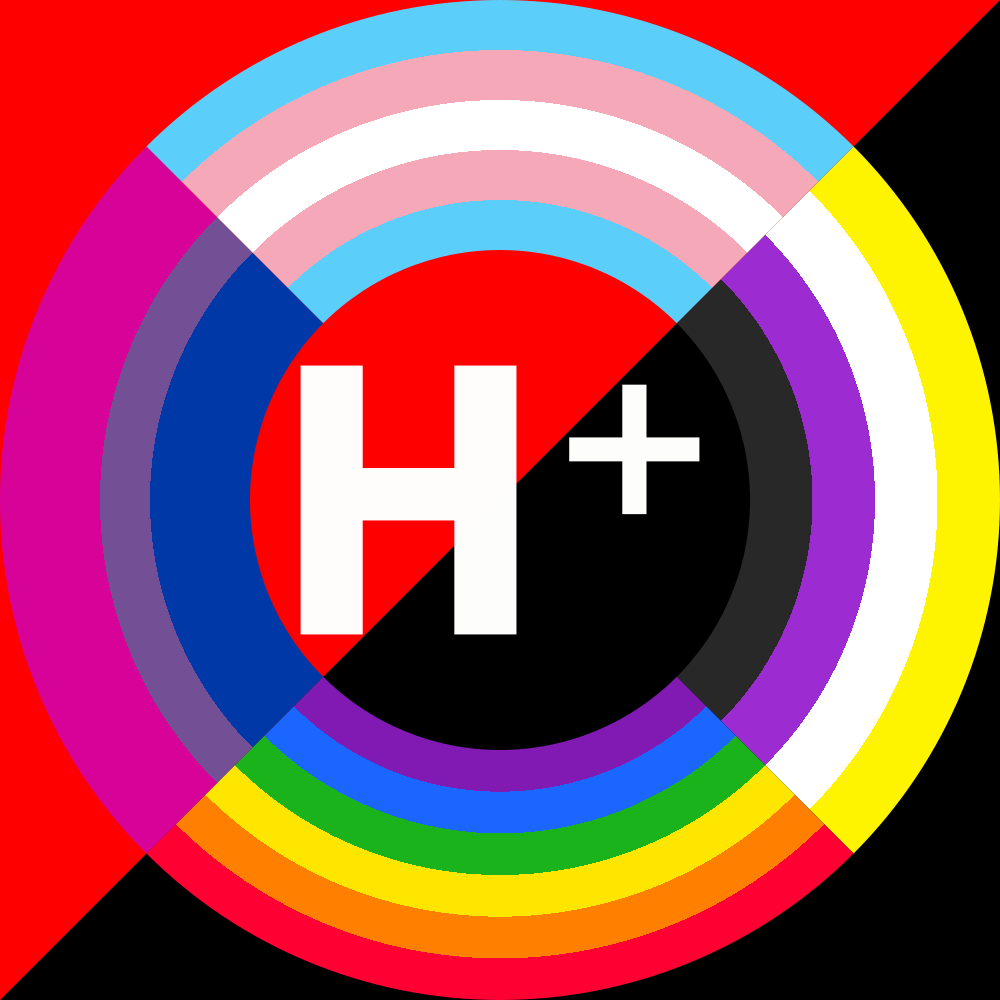The much maligned “Trusted Computing” idea requires that the party you are supposed to trust deserves to be trusted, and Google is DEFINITELY NOT worthy of being trusted, this is a naked power grab to destroy the open web for Google’s ad profits no matter the consequences, this would put heavy surveillance in Google’s hands, this would eliminate ad-blocking, this would break any and all accessibility features, this would obliterate any competing platform, this is very much opposed to what the web is.
I just had to change my domain name because Google wouldn’t stop blocking my personal server webpage for being a “phishing” website, there was no way it could be interpreted in that way at all and it didn’t matter, my personal server apps were basically blocked on 80% of browsers.
If you hosted a compromised app once, or ever messed up the setup of your mail server… that’s what happens.
I was only flagged as phishing, with full SSL certs etc
Certs only prevent others from making it look like it was you, they don’t stop someone from exploiting a vulnerable webapp you might be hosting, or using a misconfigured mail server as a relay.
If you have anything open to the public, then you either have to keep it read only, or stay on it to make sure it’s updated, secured, sanitized, and so on.
Personally, I’ve switched to using client side certificates, so everything is effectively “not public”.
Does CloudFlares HTTPS resolve that issue?
This is nothing less than a brazen attempt at total control of the primary large-scale communication mechanism of humanity.
It’s time for Alphabet to be broken up into separate letters.
Or have some letters removed all together.
Pretty much the entire US needs a healthy dose of monopoly busting.
Hell, just look at the Ma Bell breakup and the path all of those companies took to where they are now. We’re basically back to step 1.
Ad blockers are my best disability accommodation. The things they do with ads to capture attention f with my brain. I’m really going to struggle if this happens. And I’m dependent on the internet for so many things, from groceries to prescriptions to people.
Like everyone else, I was an avid google user and used google for all its services. Then I started to learn about privacy and switched to chrome to firefox with duckduckgo. Until yesterday I was also often using an adblocker for advertising, I then realized that this does harm to companies and sites that I am interested in. Advertising is fine, I enjoy it if it’s on the site, but I want to be given a choice to behave. That’s it. Tradotto con DeepL https://www.deepl.com/app/?utm_source=android&utm_medium=app&utm_campaign=share-translation
Years ago i would have agreed with you, but on this era of heavy capitalist surveillance you don’t want to give them the chance, they’ll get every bit of data they can get about you. That and ads are strong dissemination vectors for malware. If i want to support something i’d rather do it directly, ads have proven to be noxious.
I wish there was some kind of “ethical ad” standard, such that we can be served ads, maybe even “relevant” ads (with relevant topics picked by users), but without any tracking or malware, and in fact, with some kind of technology that prevents tracking instead of certifying to the advertisers that the user didn’t “tamper” with their pc so they can track as much as they want (I’m not aware of such a standard or technology. Genuine question: is there such a thing?).
Heck, I’d be even in favor of a standard to “pay to disable ads”, with reasonable fees, so that websites I like get their per-view dues, but without tracking or ads. If there was some kind of technology to send money to others without being tracked, kinda like back in the day when we used to buy newspapers at the newsstand with actual cash, but digital … who said “cryptocurrency”? Right, I heard they were actually invented to be used as currency, rather than high risk investing/speculation device … anyways, let me not digress (too much) …
duckduckgo shows basic ads when you search for anything
Can’t agree too much with you. Here, take this as a sign of my appreciation🎖
This is why you donate to Mozilla, Thunderbird, and/or the EFF.
It’s also why you use non-Chromium/non-Webkit browsers.
Gonna play devil’s advocate here… I think most Mozilla money comes from Google and i think the reason Google keeps the money flowing to Mozilla is for Chrome to have a real competitor, Firefox to date is the only popular web browser with different engine and all that. Maybe it’s fair for me to say that it resembles a tiny tiny fraction of why Intel keeps AMD alive back then.
As for EFF, i viewed them as just another NGO. For me most NGOs will have a non achievable goals, because it will be the dead of an NGO if they ever achive their goals. (No more money for them).
I’m not against people donating to Mozilla or EFF or Thunderbird Foundation. I think it will be better (yet longer process) if government can regulate big tech, much like what the European Union did with GDPR.
The government won’t regulate big tech if that doesn’t give them any benefit. Governments want to control big tech to gain more power.
Governments like the EU do not just regulate to gain power. No need to spread disinformation just so you can be more pessimistic.
the reason Google keeps the money flowing to Mozilla is for Chrome to have a real competitor, Firefox to date is the only popular web browser with different engine and all that
Did you forget Safari? It has orders of magnitude more users than Firefox and it doesn’t use the same rendering engine as Chrome.
It’s still Webkit, no?
Yep, Safari is still WebKit.
Safari thankfully hasn’t switched to Blink (the engine powering Chrome and all Chromium-based browsers), which forked from WebKit over a decade ago (April 2013).
Safari is only available on iOS, iPadOS, and macOS. In fact, every browser on iOS/iPadOS is WebKit-based, as it’s the only browser engine Apple permits on their phones and tablets. (Yes, this includes the so-called “Firefox”, “Chrome”, and all the other browser apps on iOS/iPadOS.)
GNOME Web (aka: Epiphany) is also WebKit-based and is available on Linux.
There’s no current Windows WebKit browser that I’m aware of. (Apple shipped Safari for Windows a long, long time ago, but also discontinued it shortly after.)
There are embedded ports of WebKit for various devices in the form of WPE Webkit. (WPE stands for Web Platform for Embedded.)
Hey i have Epiphany installed on my laptop, i love its clean interface! I think just last week i received an update via flathub and i feel it runs smoother now when i browse heavy website such as Google StreetView.
Safari is only available on Apple platforms though so if Mozilla goes away the option will either be to switch to chromium or buy an iPhone/Mac
Yep, that sounds like a very Mega-Corp thing to do.
I’m a non-techie and don’t understand half of this, but from what I do understand, this is a goddamn nightmare. The world is seriously going to shit.
So, a lot of the replies are highlighting how this is “nightmare fuel”.
I’ll try to provide insight into the “not nightmare” parts.The proposal is for how to share this information between parties, and they call out that they’re specifically envisioning it being between the operating system and the website. This makes it browser agnostic in principle.
Most security exploits happen either because the users computer is compromised, or a sensitive resource, like a bank, can’t tell if they’re actually talking to the user.
This provides a mechanism where the website can tell that the computer it’s talking to is actually the one running the website, and not just some intermediate, and it can also tell if the end computer is compromised without having access to the computer directly.The people who are claiming that this provides a mechanism for user tracking or leaks your browsing history to arrestors are perhaps overreacting a bit.
I work in the software security sector, specifically with device management systems that are intended to ensure that websites are only accessed by machines managed by the company, and that they meet the configuration guidelines of the company for a computer accessing their secure resources.
This is basically a generalization of already existing functionality built into Mac, windows, Android and iPhones.
Could this be used for no good? Sure. Probably will be.
But that doesn’t mean that there aren’t legitimate uses for something like this and the authors are openly evil.
This is a draft of a proposal, under discussion before preliminary conversations happen with the browser community.My ELI5 version:
Basically, the ‘Web Environment Integrity’ proposal is a new technique that verifies whether a visitor of a website is actually a human or a bot.
Currently, there are captchas where you need to select all the crosswalks, cars, bicycles, etc. which checks whether you’re a bot, but this can sometimes be bypassed by the bots themselves.
This new ‘Web Environment Integrity’ thing goes as follows:
- You visit a website
- Website wants to know whether you’re a human or a bot.
- Your browser (or the ‘client’) will send request an ‘environment attestation’ from an ‘attester’. This means that your browser (such as Firefox or Chrome) will request approval from some third-party (like Google or something) and the third-party (which is referred to as ‘attester’) will send your browser a message, which basically says ‘This user is a bot’ or ‘This user is a human being’.
- Your browser receives this message and will then send it to the website, together with the ‘attester public key’. The ‘attester public key’ can be used by the website to verify whether the attester (a.k.a. the third-party checking whether you’re a human or not) is trustworthy and will then check whether the attester says that you’re a human or not.
I hope this clears things up and if I misinterpreted the GitHub explainer, please correct me.
The reason people (rightfully) worry about this, is because it gives attesters A LOT of power. If Google decides they don’t like you, they won’t tell the website that you’re a human. Or maybe, if Google doesn’t like the website you’re trying to visit, they won’t even cooperate with attesting. Lots of things can go wrong here.
Your final paragraph is the real kicker. Google would love nothing more than to be the ONLY trusted Attester and for Chrome to be the ONLY browser that receives the “Human” flag.
Too late.
Microsoft, Apple, and most hardware manufacturers have been the ONLY trusted attester on their own hardware for years already.
Also Microsoft on most PCs.
And I’m sure Google definitely wouldn’t require your copy of Chrome to be free of any Ad-Blocking or Anti-Tracking extensions to get that “Human” flag /s
And the attester will know where you’re navigating, always.
It sounds like VPN’s would also get flagged as bots? Or could easily be treated as such.
They could get rid of ad blockers, anonymity, Tor, VPNs, Firefox, torrenting sites, independently hosted websites, open-source servers and non-Google Linux clients all in one go. It would be a corporate dream come true.
Or we could stop using their tools and services and fork off the internet run for people from the internet run for profit. It doesn’t need to be big or slick; it just needs to be there.
There are even alternative root-servers so we can even escape from the TLD hell
I like the idea of Internet 2.0. Kinda like what we are doing here on Lemmy. Corporate ruins it, we build it anew!
Appreciate you and everyone else who broke this down for me!
- You open an app…
The rest already works like that.
You can replace Google with Apple, Microsoft, any other hardware manufacturer, or any company hardware attestation software.
Why do people have a problem with this? It explicitly says browser extensions, like ad blockers, will still work. It says cross site tracking won’t be allowed. It all sounds pretty good.
It sounds like most are not liking it because of some potential future abuses rather than what it actually is?
It sounds like most are not liking it because of some potential future abuses rather than what it actually is?
If I, potentially, wanted to abuse a system, I’d probably come up with a way to modify that system such that I can abuse it, but with a plausible explanation as to why I’m not actually going to do that, so that others will agree to it.
But let’s assume, for the sake of the argument, that Google and/or the people who wrote this are actually acting in good faith. That still won’t stop other large companies like Microsoft, Apple, etc. or even future Google employees from abusing the system later on.
Yes, the potential for abuse is the big deal here. And you know humans, if it can be abused, someone will try.
Sure, but this is also a solution for the existing abuse that runs rampant. Which abuse is better?
I’m sure these same arguments against this were made for anti-virus software back in the beginning. “They’re only doing this so in the future they can flag all their competitors programs as viruses” and “they’re only doing this so they can choose who can use what”. The parallels are strong.
Is there a way to stop the existing abuse without introducing a different kind of abuse? Ideally, that’s what we should aim for, if possible at all.
If that’s not possible, restricting people’s freedoms in the digital world (or the real world, for that) to prevent some from abusing such freedoms doesn’t sound such a great proposition. As for “which abuse is better”, I’d argue that if I have to be abused one way or another, I’d prefer to be free and in control so I have a chance to stop it myself ;)
(what freedoms, you might say? freedoms to run my own choice of operating system, my choice of browser, etc. on a computer that I own, maybe even built myself, and not be prevented from accessing the internet at large)
I’m sure these same arguments against this were made for anti-virus software back in the beginning
And I’m sure some of those companies, or some of those companies’ employees, wrote some viruses themselves ;) But really, we can only speculate. Most are definitely legit and helpful.
The key here is, who is in control: the user of the software, or the company that made it? I’d say even for antiviruses, the user is in control, can choose a different antivirus or no antivirus at all (like me). In this Google proposal, it seems Google and other big corporations will be in control and not the user. That’s the reason why it’s bad. If I have to be abused, at least I like being in control so I can (try to) prevent it.
Maybe somebody can do a better job of boiling this down than I can.
Basically, right now, if you ask for something on the internet, it gets served to you. Sure there are lots of server side protections that may require an account to log in to access things or what have you, but still you can at least request something from a server and get some sort of response in return.
What this does is force attestation through a third party. I can ask for something from a server and the server turns to the attester and goes, “Hey, should I give this guy what he’s asking for?” and the attester can say “No” for whatever reasons it might. Or worse yet, I can get the attestation but the server can then decide based in turn that it doesn’t like me having that attestation and I get nothing.
You can make arguments that this would be good and useful, but it’s so easy to see how this could go sideways and nobody with any sense should be taking Google or any of these large corporations at their word.
From my understanding, there’s no reason whatsoever to do this besides censorship, for better and for worse. There’s a possibility good, and I’m sure the good would happen, but there’s an even greater possibility it would be bad for users which would surely happen.
Sorry, yes, still trying to wrap my head around it. It’s one of those things where there is quite obviously no direct benefit for the user. The company is trying to sell it as improving their content, moderation, security, etc. which may have indirect, knock-on effects for the end user but whether that would even be true or if it would be perceptible to your average person is MUCH more questionable.
It’s the same kind of thing when you see people defending exclusivity on consoles. I mean sure, it helps prop up your favorite company/developer in hopes that the market benefit may someday come back around and help them to produce more content/games that you like, but people seriously need to start looking out after their own self interests first and corporations be damned. They earn money by providing actual value, don’t ever argue against yourself.
It will stop bots/scrapers/etc dead in their tracks seems to be the main reason.
This is part of a broader plan:
- Get hardware attestation, aka secure boot (DONE)
- Get software attestation, via app stores (DONE)
- Get web app attestation (this proposal)
- Compile all web apps to webassembly (upcoming)
- Create a provider-controlled environment on user-supplied devices (partially there)
Only basic extensions and ad blockers will work with compiled apps (Manifest V3 is part of that plan). Accessibility features will be as good as those of Flash.
What most are not liking, is the change in power dynamic on the WWW:
-
Before: “you give me some data and I’ll decide what to do with it”
-
Upcoming: “we’ll give you some data and you will do exactly as we tell you with it”
The time might be coming to create a “libre WWW”, parallel to the “corporate WWW”.
I’m mostly in agreement but … what’s wrong with webassembly? that’s just another way to compile webapps into, or parts of webapps, other than javascript. What am I missing?
“Compiled” is the key: a non-reversible operation that implies loss of syntactical and grammatical content. Meaning, it’s harder to analyze, reason about, or modify. As the “assembly” part indicates, it’s intended to be as hard to analyze, reason about, or modify, as possible.
First there was Java, then there was Flash, now there is Webassembly… all compiled to bytecode, all running in their VM, all intent on converting all apps everywhere, and to lock “proprietary” elements away from the prying eyes and hands of content blockers, analyzers, or even worse: control by end users.
Webassembly and attestation just go hand in hand to create a remote-controlled enclave on a user-owned device that will make it as hard as possible for the user to control.
Some may see it as an inherent exploitation of the user’s resources (already used for cryptominer exploits), others as an attack vector that will be difficult to mitigate by design, others as an unnecessary duplication of the JVM.
Look, I hate this proposal from Google as much as anyone else here, but let’s stick to the facts.
As the “assembly” part indicates, it’s intended to be as hard to analyze
The “assembly” is just a reference to machine instructions, a.k.a “assembly language”.
Minified javascript, on the other hand, is made with the express purpose of obfuscation and as well, minimize load times, but mainly obfuscation in practice.
That’s to say, you don’t need webassembly to make it hard to reverse engineer. At least webassembly is a standard.
First there was Java, then there was Flash, now there is Webassembly
First, there were machine instruction, then people invented handy mnemonics for those and called “assembly language”. Then there was C, then C++ (let’s skip the basic, pascal, etc) and those weren’t meant to be hard to analyze, they were and still are meant to be close to the machine, to be fast. Webassembly has similar goals. They can be relatively easily decompiled, just as much as webassembly I’m sure, unless they are purposefully obfuscated.
Just like native machine code and javascript, it can be decompiled/reverse engineered, and also obfuscated, but that’s not its goal, not as stated nor in practice.
You went a bit too far back, I was talking about compiled languages intended for the web.
There is nothing easy sbout decompiling native code, even before we start with jumps into the middle of instructions and polymorphic code. Reverse engineering obfuscated JavaScript is orders of magnitude easier than that, and most minified JavaScript isn’t even obfuscated.
The only saving grace for Webassembly is that it requires keeping stuff in blocks, with if, then, else, etc. reasonably delimited, and (I think) it doesn’t allow too many shenanigans with indirect calls. But stuff like
br_table, doesn’t make me particularly eager to tackle decoding what someone meant.
Even more “we’ll decide if you are worthy to get my data”
Ah yes, Google pinky promises it won’t use this to screw us over, we’re good to go!
Alright, I’m kinda slow today, so tell me if I got it right: We, the users, will be “kindly asked” to get one thingamabob signature/identifier of “integrity”, so websites “know” whether we’re good or bad guys?
Your hardware and OS already get asked to verify whether it’s safe to run an app on it (see: banking apps).
Same thing, but now with web browsers.
deleted by creator
Give me Firefox or give me death.
I’m working on essentially removing Google from my life.
Not a bad idea. Just also avoid Microsoft, Apple, and any non-open hardware or software… they all do the same stuff or worse.
I don’t let perfection be the enemy of progress.
Is it progress, or just picking a different cage?
Good luck in your voyages though, my approach is to try keeping stuff in multiple cages, also far from perfect.
Spoiler for a later stage of your journey: Your phone gets wayv faster. That part is pretty nice.
Oh really? Is this from like not having to contact google analytics for every action?
I’m not sure, honestly.
Charitably, we could assume it’s just from removing Google and various carriers background apps meant to improve my experience.
Uncharitably, I have my suspicions. For the last five or so versions of Android something always seemed to be using processor cycles and battery when I wasn’t actually doing much with my phone.
But I never saw evidence of usage data exfiltration via Google apps - at least after I turned off the related optional settings.
In any case, switching to GrapheneOs was a startling and pleasant speed boost for me, whatever the real root cause.
The only thing I have left is YouTube. Apparently Piped allows registering and then storing subscriptions, maybe I’ll move mine there.
Gotta say, deleting my google account would be very awesome to do
Use invidious to watch YT videos “outside YT”. I think viewing from there doesn’t count towards their metrics, so you’re “freeloading” on their content. Some instances:
I use FreeTube, which is opensource and allows you to subscribe to channels without an account. The awesome thing is that you can categorize channels under different “profiles”.
However, I think it won’t take too long for Google to paywall YouTube APIs and do what it can to prevent web scraping (through disabling login-less use or attempts such as the one linked in this thread.). So our best option would be to ask our favorite Youtubers to move (or duplicate) their videos to other platforms such a peertube, and start using those platforms ourselves.
That is the only solution to all this!
To everyone: Please remove at least as much Google products/services as you can from your life. Start with the easiest ones. Have a plan and gradually find alternatives for all other products/services of them. Remove them from your life. It will help even if you do this partly. This is for the benefit of us all.
Also, let’s do the same to Microsoft, Apple, Meta, Reddit etc. Let’s not let our lives depend on them. They are corporations. They are programmed to maximize profit.
I know there’s currently not a lot of good alternatives out there, but if enough of us ditch these ass-companies, more and more open-source, decentralized, not-for-benefit services will pop up, and the existing ones will improve greatly. These are not for-profit projects that can be bought by corporations later and used to their benefit. They will only benefit their users.
Let’s do this!
Fuck megacorporations!
@ConfusedLlama @jherazob @kool_newt At this point I’m starting to wonder if an iPhone might be the lesser of two evils… sheesh
I wish it were feasible to get off youtube…
gradually find alternatives for all other products/services of them
The difficult part is finding real alternatives that fundamentally improve the situation. Most of the alternatives out there are just shams, which have all the same problems, but are more expensive, less reliable or otherwise fundamentally flawed. Be it the Feddiverse (literally just a central server, all the federation is optional), Firefox (Google’s way to fend of monopoly lawsuits and stop real alternatives from arising, still telemetry, constantly tries to sell you something) or self hosting (pay more, get less).
Linux on a PC works well enough as Windows alternative, but as soon as it comes to anything networking/Web/cloud related things are a f’n wasteland. The part I don’t get is why we still don’t even have a reliable way to hole-punch through NAT and an alternative to DNS in the Free Software world. That has been the major pain point for at least the last 20 years and is the major stopping block for true P2P alternative software, but it’s still largely an unsolved problems (
libp2pis one way to deal with it, but not in widespread use and still has numerous problems from what I understand).
For me the most annoying part was switching off gmail (I went to fastmail) and the hardest habbit to break was Google search (I mostly use DDG).
I use fastmail, great service.
What motivated me to do that is finding these megacorp providers do not keep your email private.
I don’t remember what my breaking point was, but since I dropped gmail there have been 2 or 3 announcements about it that would have gotten me to that point again.
That’s one way to kill the WWW.
Well good thing they have a company slogan of do no evil… Oh wait.


























